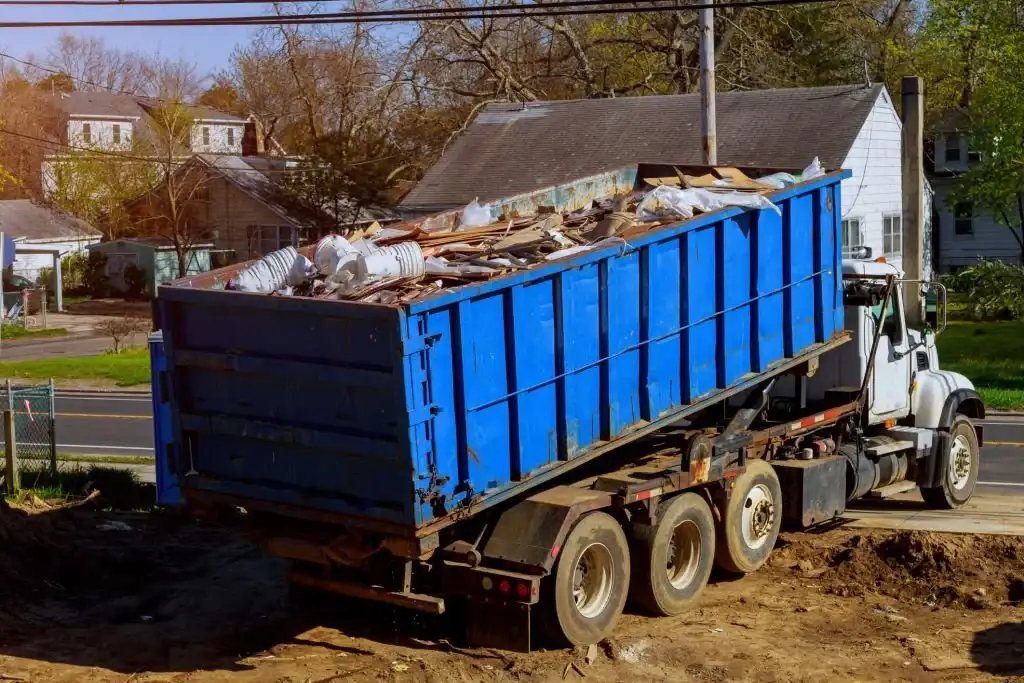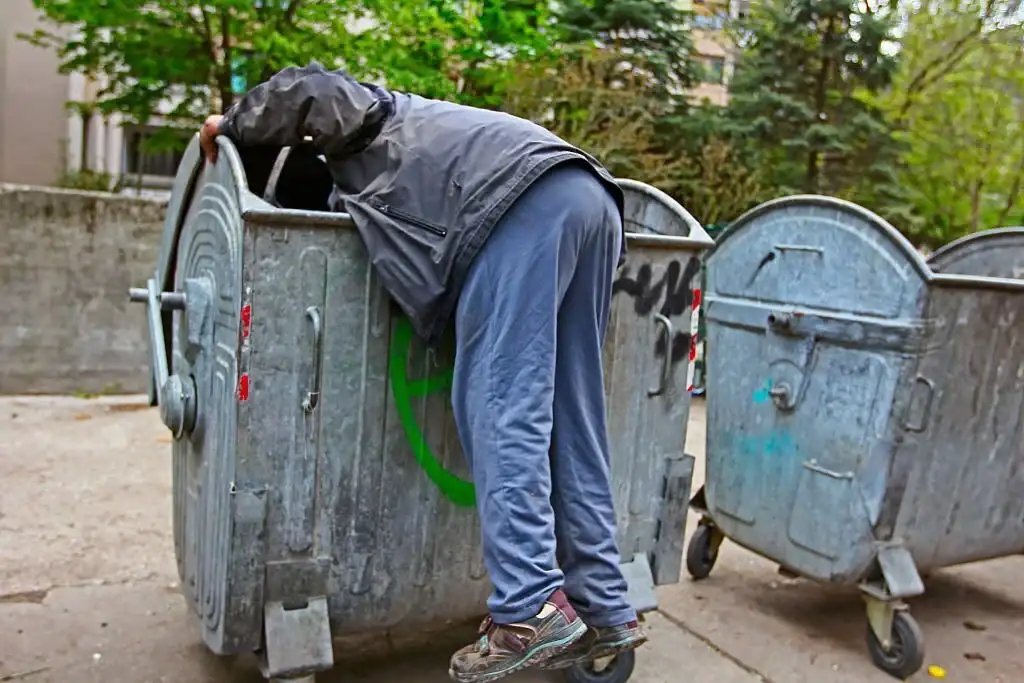Dumpster diving, the act of searching through trash or dumpsters for discarded items, has gained popularity as a means of finding usable goods and reducing waste. However, the legality of dumpster diving in the United States can be a complex matter influenced by various factors. In this article, we will explore the legal considerations and guidelines surrounding dumpster diving across the country.
Understanding the Legal Landscape
Dumpster diving is generally considered legal in all 50 states according to the Supreme Court ruling in the 1988 case of State of California v. Greenwood. The court established that searching for trash is legal as long as it does not conflict with any local, city, or state ordinances. However, it is important to note that specific laws and regulations can vary from one jurisdiction to another, including at the county and city levels.
Local Laws and Ordinances
To ensure compliance with dumpster diving regulations, it is crucial to research and understand the local laws and ordinances in your area. Start by reviewing your state laws and accessing state or county websites for more specific information. Laws can be searchable or listed under waste or garbage sections. By delving into the granular details of these laws, you can stay on the right side of legality.
The legality of dumpster diving can be viewed as a hierarchy of laws, with each level potentially having different regulations:
- Federal law: Dumpster diving is generally legal at the federal level.
- State law: Dumpster diving is typically legal, but there may be specific restrictions or variations by state.
- County law: Regulations can vary at the county level, and it is important to research the specific laws in your county.
- City law: Cities may have their own ordinances regarding dumpster diving, and it is crucial to research these regulations.
- Private property: Dumpster diving on private property without the owner’s permission is illegal.
It’s worth noting that signs or locks on dumpsters can indicate that the contents are off-limits, and tampering with such locks or disregarding warning signs can lead to legal consequences.
Trespassing Considerations
Trespassing laws play a significant role in the legality of dumpster diving. If you enter private property, such as jumping a fence or walking through a gate to access a dumpster, you may be trespassing. Dumpster diving on private property without the permission of the property owner can result in tickets or arrests.
It’s important to distinguish between dumpsters located on private property and those on public city streets. Dumpster diving on public streets is generally considered legal, as it falls within the public domain.

Responsible Dumpster Diving
To engage in dumpster diving responsibly and legally, consider the following guidelines:
- Research local laws: Familiarize yourself with the specific laws and regulations in your area to ensure compliance.
- Obtain permission: If dumpster diving on private property, seek permission from the owner or business beforehand.
- Respect signage and locks: Take note of warning signs or locks on dumpsters and refrain from tampering or disregarding them.
- Avoid disorderly conduct: Practice dumpster diving in a respectful and orderly manner to avoid potential legal issues, such as disorderly conduct charges.
- Be mindful of your surroundings: If using a vehicle during dumpster diving, park responsibly and considerate of potential misconceptions or concerns from others.
- Stay out of recycling bins: Dumpster diving specifically for recyclable items can be seen as stealing and may lead to legal repercussions.
Remember that personal accountability is crucial when engaging in dumpster diving. Businesses may have concerns about liability, and individuals should weigh the risks and benefits associated with each dumpster diving opportunity.
Conclusion
The legality of dumpster diving in the United States is subject to various factors, including local laws, private property considerations, and responsible conduct. While dumpster diving itself is generally legal according to the Supreme Court ruling, it is essential to research and understand the specific laws and regulations in your area to ensure compliance and avoid any potential legal issues. By staying informed and acting responsibly, individuals can engage in dumpster diving as a means of waste reduction and finding usable items.
FAQs
1. Is dumpster diving legal everywhere in the United States?
Dumpster diving is technically legal in all 50 states according to the Supreme Court ruling. However, specific laws and regulations can vary at the local level, so it’s important to research and understand the laws in your area.
2. Can I dumpster dive on private property?
Dumpster diving on private property without the permission of the owner is generally considered illegal. It’s crucial to respect private property rights and seek permission when accessing dumpsters on private premises.
3. Are there any restrictions on what can be taken while dumpster diving?
Certain states or local ordinances may have restrictions on certain types of items that can be taken while dumpster diving, such as medical waste or confidential documents. It’s important to be aware of any such restrictions in your area.
4. Can businesses prosecute dumpster divers?
Businesses have the right to prosecute individuals who trespass or engage in unlawful activities, including dumpster diving without permission. It’s important to respect the rules and regulations set by businesses and seek permission when necessary.
5. What should I do if I encounter law enforcement while dumpster diving?
If you encounter law enforcement while dumpster diving, it’s important to remain calm and cooperative. Familiarize yourself with the laws in your area and be prepared to explain that you are engaging in legal dumpster diving activities. Always respect the authority of law enforcement officers and follow their instructions.
6. Are there any safety precautions I should take while dumpster diving?
When engaging in dumpster diving, it’s important to prioritize safety. Use gloves and other protective gear to avoid injuries or exposure to hazardous materials. Be cautious of sharp objects or broken glass within dumpsters. Additionally, be mindful of your surroundings and potential hazards in the area.
7. Can I sell or donate the items I find while dumpster diving?
The legality of selling or donating items found while dumpster diving may vary depending on local laws and regulations. It’s advisable to research and understand the specific rules regarding the sale or donation of dumpster-dived items in your area.
8. Are there any alternatives to dumpster diving for finding usable items?
Yes, there are alternative ways to find usable items and reduce waste. Consider participating in community swap events, visiting thrift stores, or utilizing online platforms for free or discounted items. These options provide opportunities to acquire items legally and ethically.
9. Can dumpster diving be considered a sustainable practice?
Dumpster diving can contribute to waste reduction and promote recycling by finding usable items that would otherwise end up in landfills. When done responsibly and legally, dumpster diving can align with sustainable practices and help reduce waste.
10. Is dumpster diving suitable for everyone?
Dumpster diving may not be suitable for everyone, as it requires knowledge of local laws, physical capabilities, and personal comfort levels. Individuals interested in dumpster diving should assess their own circumstances and make informed decisions accordingly.

Greetings, eco-conscious explorers! I am Arjun Bandari, a seasoned Dumpster Diving enthusiast with over a decade of expertise in uncovering hidden treasures amidst the discarded. My journey into this unconventional lifestyle began in New York, fueled by a passion for sustainability and a desire to challenge the norms of our throwaway culture.
With a bachelor’s in Enviromental Health and Safety, I seamlessly blend academic insights with practical experiences to navigate the world of Dumpster Diving. Over the years, I’ve become a recognized figure in the sustainable living community, sharing my discoveries and insights through workshops, community outreach, and various online platforms.
My commitment to promoting eco-friendly practices has garnered attention from local and regional media, earning me featured spots in publications that highlight the environmental impact of Dumpster Diving. As an advocate for responsible waste management, I have been honored with awards recognizing my contributions to the field.
In addition to my hands-on experiences, I’ve extended my reach through various published works, shedding light on the untapped potential within discarded items. Whether it’s repurposing furniture, salvaging electronics, or sharing practical tips for fellow Dumpster Diving enthusiasts, I am dedicated to inspiring a conscious and sustainable way of living.
Join me on this exciting journey as we redefine the narrative around waste, discover hidden gems, and collectively contribute to a greener, more sustainable future. Together, let’s dive into the world of Dumpster Diving and uncover the beauty beneath the surface of our disposable society.

